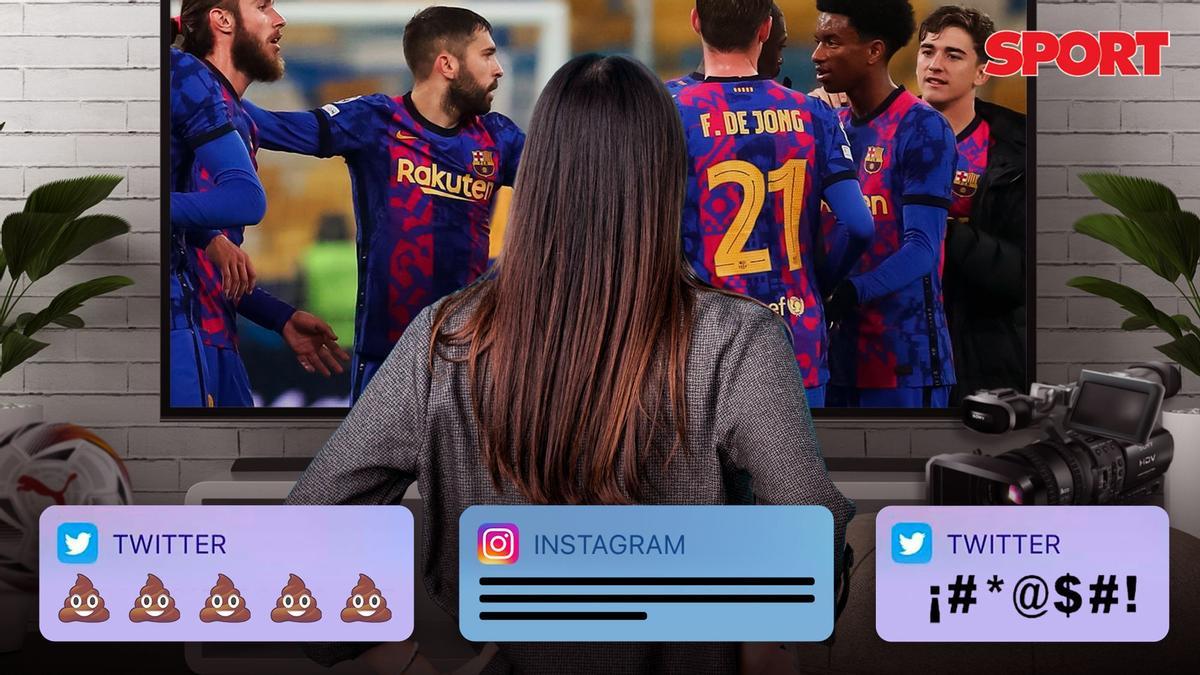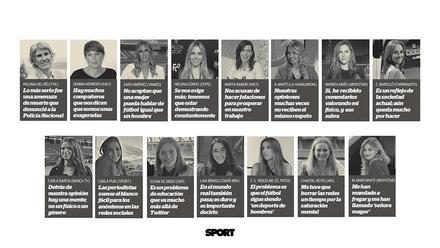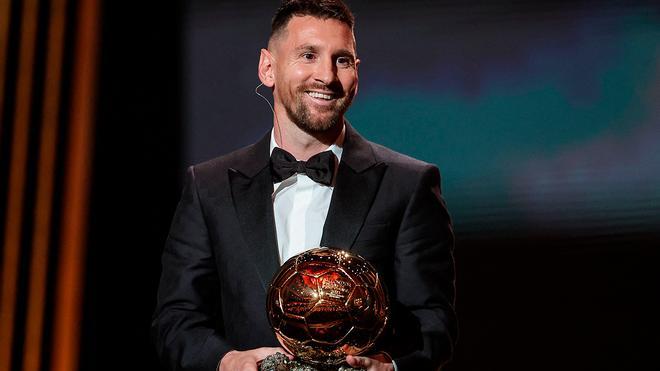Enough! Female sports journalists receive disproportionate abuse

Women receive more insults online and in real life just because of their gender
A lack of respect, harassment, insults and even threats. This is what we as female sports journalists suffer daily in a world that, unfortunately, continues to be a 'man's world.' Or, as Gemma Herrero (RAC1) puts it, "a kind of sanctuary where women are not welcome."
It can be more or less serious, frequent or sporadic, comments in public or private messages, but the majority of female sports journalists have experienced these problems. "We all receive insults, but we always have one more reason to complain: they don't criticise what we say, but that we're women," explains Laia Bonals (ARA).
For Marta Ramon (RAC1), "the reactions to what we publish are very different to those which our colleagues receive," in relation to the type of comments: "Very serious insults, negative comments on my appearances and my work. They even ask me how much fellatio I have given to get where I am."
It's similar for Anais Marti (La Vanguardia): "The most common are related to appearance and gender, some with sexual connotations, like 'what have you done with your bosses for them to let you publish articles.'"
"I have never received such serious comments, but valuations on my appearance, and there's no need, explains Andrea Gines (Movistar). "It's the sensation that we have to constantly prove what we're worth," adds Helena Condis (COPE), "as if we always have to pass an exam," (Marta Ramon), "as if we have to be superwomen," (Laia Bonals). "And behind our opinion is a mind, not a physical appearance of a gender," reasons Carla Garcia (Barça TV).

Las periodistas deportivas decimos 'basta'
| Maria TikasThreats
"Apart from various insults and the classics of getting back in the kitchen," says Paloma del Rio (TVE), "the most serious I have experienced was a death threat that I reported to the police immediately. The person made the comment with so much insolence that they did so in public and did not delete it." Carme Barcelo (Chiringuito) also received a serious threat: "I didn't make it public at that moment because the police recommended I didn't, but I respect my colleagues that do. This is just a reflection of society currently."
"I once hooked a part of my article on the Champions League final between Real Madrid and Atletico," Gemma Herrero explains, "and the level of verbal aggression and violence I received was really strong, I didn't have time to delete all the comments."
"They have recently impersonated me recently, I suppose to discredit me", says Mónica Marchante (Movistar), "they have sent me to wash up, they have called me 'old lady', as if that were a problem."
Report or ignore
Some of us report these comments, others choose to ignore or block. "The solution they give us to not pay attention, as if it's us that don't have thick skin. And that's not the case. It's that we don't stop receiving strong attacks day after day for the simple fact that we are women," continues Gemma Herrero. "Even some colleagues don't seem to listen to us or suggest we're exaggerating instead of stepping onto our side."
"I deleted social media for a while," confesses Chantal Reyes (Mundo Deportivo), "not for the harassment in itself, but for the mental saturation of having to read certain comments and just wanting to disconnect from the pressure and the demands that come with that."
But this also happens in the real world. "It goes beyond Twitter," says Elena de Diego (SER). "It happens in the streets, in the stadiums, in work and also in comments from people we know." And Laia Bonals added: "That's much tougher and it's important to call it out."
Machismo and education
Behind all this abuse there is a common denominator, machismo: "They can't comprehend us as people to listen to, value or imitate," says Marta Ramon, "they don't consider us equal nor do they give us any credibility or authority."
"As a sports journalist," explains Sandra S. Riquelme (El Patio), "I have detected two types of machismo: Firstly, involuntary, which is internalised in a lot of people. They are still surprised that I could know what a wing back is or system with five defenders. They're not used to it. And the other type is pure machismo in the 'what can this woman tell me if she had no idea' sense."
For Sara Gimenez (Vamos), the problem in the background is also "impunity that people feel on social media, as well as the ignorance of a part of society that remains sexist and for whom it is impossible to imagine that a woman can speak well of a man without wanting anything in return."
Can it be eradicated? "It's very complicated," responded everyone. "It's something that's been rooted in our society for many years," says Chantal Reyes. Time, generational changes and education. A lot of education from an early age. "Also, that the media themselves begin to value female sports journalists for their work and not for being women and fulfilling quotas," adds Anais Marti. And Marta Ramon finishes calling for "our colleagues to act as allies, reporting (the harassment and comments) and putting themselves on our side."
For all that and for much more, today we say "enough."
Topics with the letter





